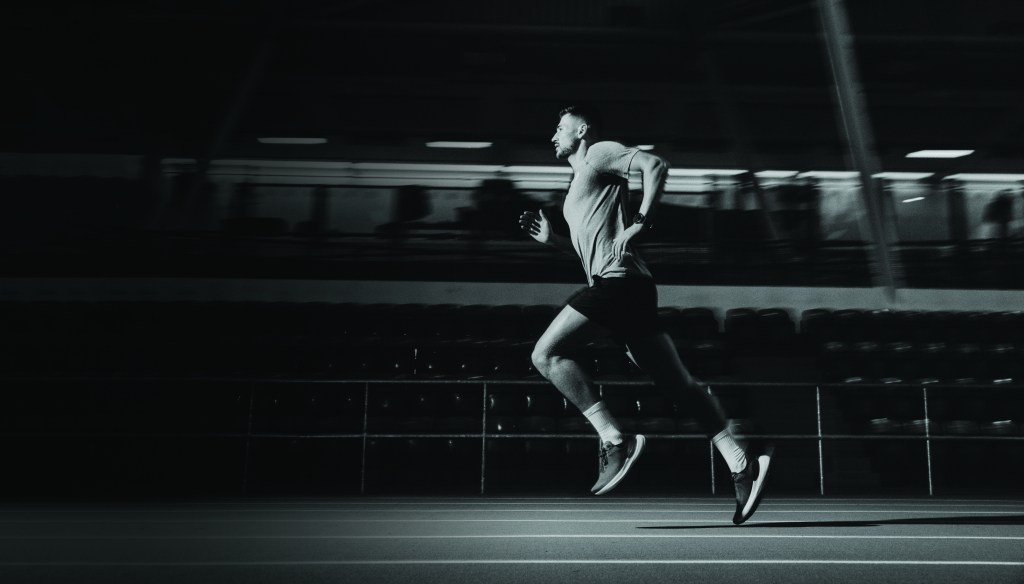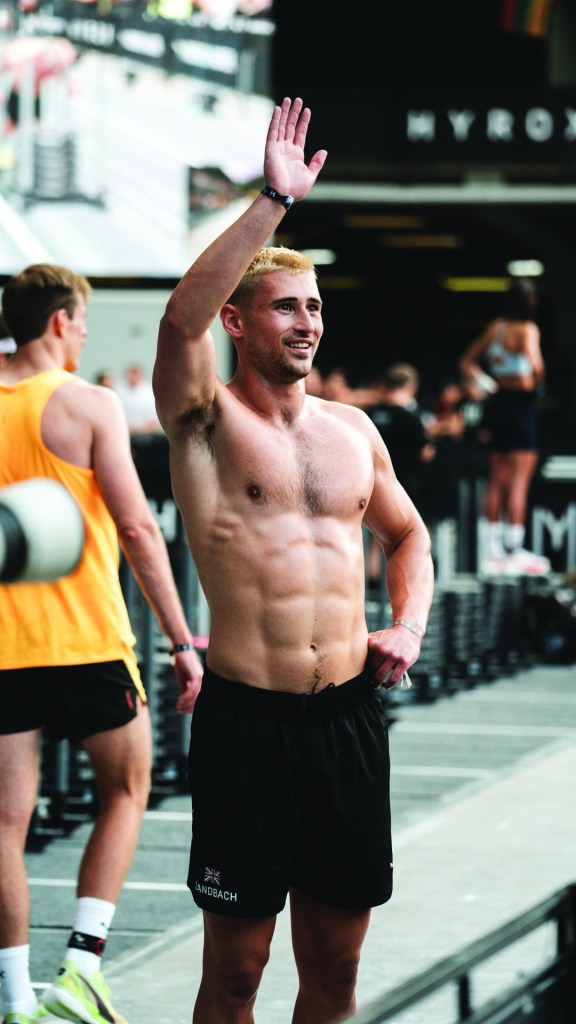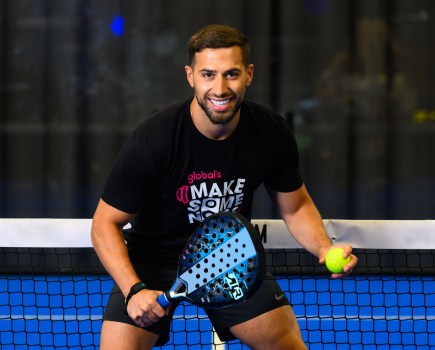After facing discrimination in football, openly gay athlete Jake Williamson has found his true calling in Hyrox, breaking records and inspiring others with his journey of self-acceptance and inclusivity
Jake Williamson was pursuing a career as a promising footballer when Covid put paid to planned trials in Chicago. “I think everything happens for a reason,” says the now 26-year-old. The pandemic gave him space away from the laddish culture of the changing rooms, where homophobia, racism and close-to-the-bone jokes were brushed off as banter. He also met his partner, Paul.
“It made me realise, ‘Maybe I am gay,’” he tells MF. “You spend a lot of the time denying it to yourself because of those environments.” After appearing on the BBC’s The LGBT Sport Podcast where he shared his story, Williamson was dropped from his Sunday league team. While his first love might have turned its back on him, the Birmingham-based personal trainer soon threw himself into another pursuit: Hyrox.
A county-level middle-distance runner as a teen, he excelled in the burgeoning hybrid fitness racing scene, winning his age group in his first event in Barcelona 2023. An age-group world record followed at his next event in London, while at the 2024 Hyrox World Championships he was part of the winning England team in the Elite Relay.
From Hyrox’s inclusivity to using his social media accounts to help others, he shares his experience as an openly gay athlete.

Men’s Fitness: What was it like being kicked off of your football team for your sexuality?
Jake Williamson: I’d done a podcast for the BBC and when I shared it, most people were messaging me being like, ‘Oh my God, I didn’t know’ sort of thing. I was playing for a Sunday league team, and they heard the podcast. I’d already texted the manager saying, ‘I’m available for the weekend’ and I didn’t hear anything. And then I was removed from the group chat.
There are still behaviors and things that aren’t acceptable, which make it difficult for people to come out, especially within football and male-dominated sports. When you have a group of 15-16 lads in a changing room, there’s going to be an element of childish behavior, but I think people often forget there’s always going to be one person within that 16 who’s affected by whatever you’re saying. We need to have a reminder that these conversations and topics aren’t OK. But 99% of the time, [coming out] is well received – people ask questions and they care about it.
MF: What inspired you to take up Hyrox?
JW: I was working in a gym as a personal trainer, and training for the 2022 London Marathon. Someone sent me a message on Instagram, saying ‘Have you heard of this? I think you’d be great at it.’ I did my marathon, had a great time and, when I could finally walk again, I looked at where the next Hyrox was and saw it was Barcelona. My partner and I flew out on a whim, and I ended up winning the event.
Once you do one, you get a taste for it. It was helped as well because Hunter [McIntyre], who was the best in the world, was there, and he broke the world record at the same race. I was like, ‘This is cool, I want to be like that guy’ and then I was invited out to Malibu in LA to train at his house. It all happened quite quickly in terms of the Hyrox journey and the growth of it, as well as my profile.
MF: And less than two years later, you’re a world champion?
JW: Michael Sandbach is the best in the UK and [Elite Relay] team captain. He’d already taken one of the two male slots. I said he should pick me and, luckily, he did. The relay is a lot faster than a singles race because you only do two stations [each]. My track background gave me that advantage over the other guys. I did the first leg, which I was a bit nervous to do because it was against some of the big guns. Hunter only beat me by three seconds, which I can be quite proud of – he’s a hell of an athlete. We ended up somehow taking the win in the first ever Mixed Relay World Championships.
MF: How has the Hyrox community reacted to your sexuality?
JW: I was such an early adopter of Hyrox, and when I came into the sport I was already openly gay. It wasn’t like I had to come out to people, they already knew, and there were never any conversations around it. It’s always been extremely welcoming.
Sports can naturally feel a bit cliquey and scary, but I’ve been able to set a precedent early on that this is an inclusive sport. I’m openly gay, and I’ve just won the World Championships with England. You can come and do this sport regardless of your sexuality, gender, race or whatever it is you feel might be a limiting factor for you to be accepted within it.
There is that level of acceptance because it’s a new sport. Men’s football, for example, has historical factors: it’s got hooliganism, racism, homophobia, which is still relevant today, unfortunately.

MF: How does your training differ compared to football?
JW: A lot more volume and a lot more gym work. The Hyrox space is such a difficult world because you can’t be the best at everything. You have to work on your weaknesses, but then you have to keep your other things topped up. You’ve got to have every single piece of your sport and athleticism – decent running, high-end strength, and strength endurance – which is why it’s so great.
MF: What are your hopes for the future?
JW: Anyone competing competitively within Hyrox will say, ‘I want to be in the Elite 15 as a regular.’ I’ve been in it once, but it changes all the time, because there’s so many different athletes coming in, and 15 people isn’t a lot. But then you’ve also got to be realistic. Until you’ve put those times down regularly, you can’t really make those claims. I want to let my performances do the talking.
Getting back into the relay team for next year would be a big goal and then there’s also an Elite 15 doubles competition. Me and my friend Sam, who trains with me at Forder’s in Redditch, Birmingham, have said we’re going to try and qualify for that at Worlds. So at least that will be a buffer if I don’t make the Elite 15 again this year.
MF: Finally, tell us about how you’re using your social media to help others.
JW: It’s quite difficult to come out as gay in a sporting environment, because you feel like you’re very much on your own a lot of the time. That isn’t actually the case, because there are people that will support you, but when you’re going through that process and that journey, it can be lonely.
I was starting to share more about my experiences with coming out, but also coming out within sport, and it just grew and grew and grew. I’m lucky enough to have a partnership with Instagram, to help other gay men in particular, but also to share other athletes and push the fact that it’s really not as bad and as impossible as you think when you’re trying to come out.






